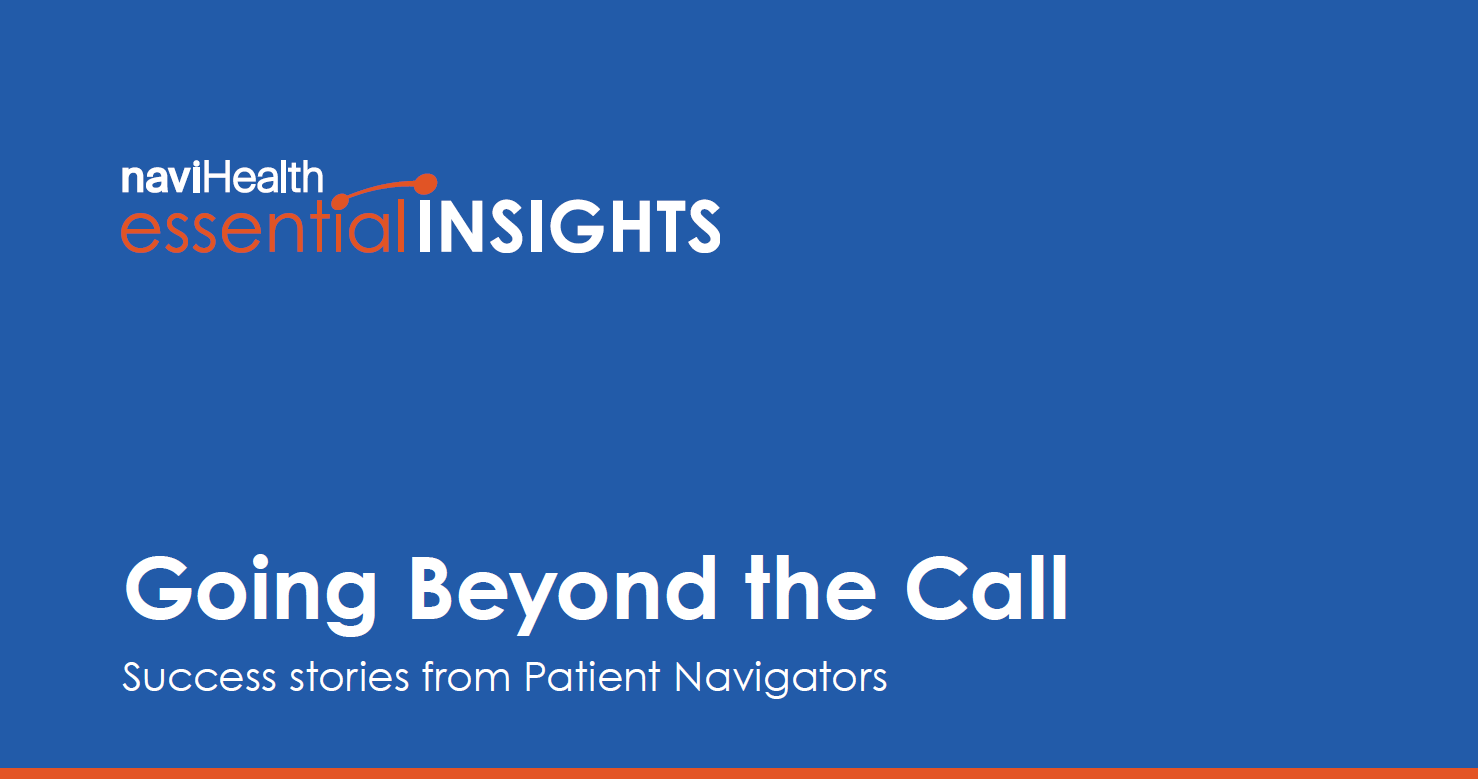Health equity, social determinants of health (SDoH), aging and innovation were among the hot topics for health care professionals in 2021 — and all were featured prominently in SOAP Notes, the naviHealth podcast launched last February. Over a dozen episodes, SOAP Notes became the forum for thought-provoking conversations with leading health care innovators about how their organizations are confronting today’s challenges.
In our end-of-year wrap-up episode, we looked back on conversations with leaders from CVS Health/Aetna, Meharry Medical College, the Johns Hopkins University School of Nursing, Optum and others that break down and expand on the topics of health equity and taking care of the whole patient and the whole system.
Here are highlights, lightly edited for clarity.
A commitment to equity
Dr. Kyu Rhee, senior vice president and Aetna chief medical officer, CVS Health
When asked to define health equity and discuss his experience in advancing that goal, Dr. Rhee elaborated:
“Throughout my career — as a primary care physician; as a community-based leader; as a public servant working at two federal agencies, NIH and HRSA; at IBM at a global level in health tech; and now at CVS Health — I’ve had the good fortune to be thinking about issues of health and health care and the importance of health equity.
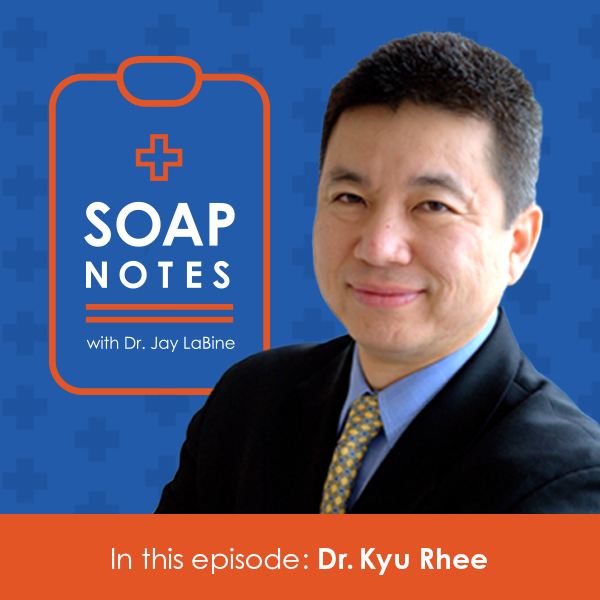
To watch the full episode of SOAP Notes with Dr. Kyu Rhee, click here.
“Put simply, health equity is about a population that really is in need but isn’t getting the care or the outcomes that we would expect with a health system like the U.S., with its ability to deliver and how much we spend on it. Whether defined by status as a racial or ethnic minority, by being in a rural community, by gender identity or sexual orientation, or by being a veteran or someone with a disability, 1 in 3 to 1 in 4 Americans suffer from health disparities.
“Our efforts in health equity are to bring the health of that population to the level we know we can achieve — because other populations are achieving it. I’m very proud about the opportunities that I’ve had to address this. Now, in this pandemic, it’s extraordinary to see the role that CVS Health is playing in addressing topics like vaccine equity and so many other areas. Our mission is to bring heart to every moment of your health. And I believe we bring equity to every moment of your health. That’s our commitment.”
ZIP code and life expectancy
Dr. James E.K. Hildreth, president and CEO, Meharry Medical College
In the oft-cited words of Dr. David Williams, a professor of public health at Harvard University, “Your ZIP code is a better predictor than your genetic code of how long and how well you will live.” After Dr. LaBine referenced research supporting that idea, Dr. Hildreth responded:
“I think a lot of it has to do with economic attainment and educational attainment. In Washington, D.C., for example, there are two ZIP codes where there is a decade difference in life expectancy for white men and Black men. Think about that: 10 years, here in the United States. But the ZIP code determines whether or not there are parks, places to walk and exercise, access to grocery stores with fresh vegetables versus quick-pick stores where you get foods that are high in calories but not very nutritious.
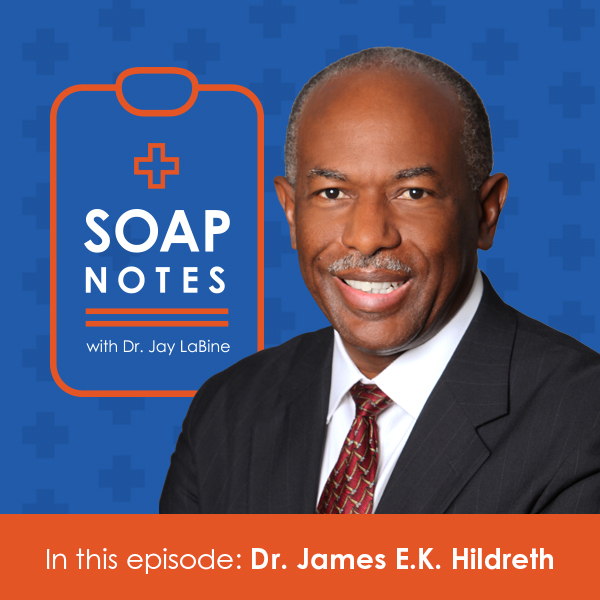
To watch the full episode of SOAP Notes with Dr. James E.K. Hildreth, click here.
“A lot of these social determinants of health are illustrated quite dramatically by ZIP codes. I think Dr. Williams is really correct that, in a lot of ways, these social determinants can be illustrated quite easily by picking ZIP codes and looking at what’s available to the persons who live there: the housing, the kind of jobs they do, whether or not there are parks and sidewalks for walking and exercising. It’s a point that we need to be focused on as we try to eliminate these disparities. It’s a major factor.
The language of aging
Alice Bonner, PhD, RN, FAAN, adjunct faculty, Johns Hopkins University School of Nursing, and senior advisor for aging, Institute for Healthcare Improvement
Dr. LaBine asked Bonner about the meaning of “aging in place” and “aging in community,” as well as what caregivers for seniors should be thinking about.
“Sometimes we try to adjust the language a little bit,” she said. “We used to say ‘aging inplace,’ and sometimes we still do because people understand generally that means staying in your home, staying in your neighborhood, your community. But we don’t want it to sound static. We don’t want to seem like we’re just aging in place, like we’re marching and not getting anywhere. So sometimes we say ‘thriving in community’ or discuss the well-being of older people ‘where they are,’ meeting them where they are. What it really is trying to say to us is: Let’s listen carefully to what people are telling us. Organizations like the FrameWorks Institute and a bunch of other ones are really looking at language. But when we say aging in a community, it’s what you suggested.
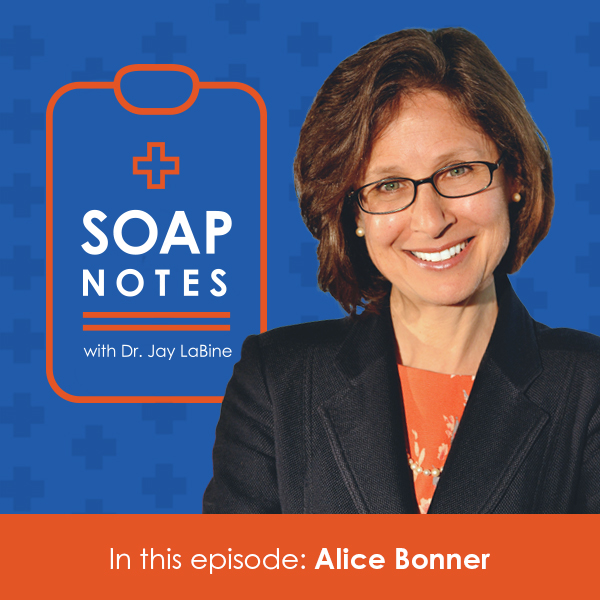
To watch the full episode of SOAP Notes with Alice Bonner, PhD, RN, FAAN, click here.
“Something like 90% of people will want to stay where they know the pharmacist, the person at the post office, the hairdresser, the faith-based leader. For all of those things, that’s what we imagine — especially people in policy roles or leaders of Medicare Advantage plans or other health plans. All of us need to think together and collaborate around ‘Well, what would that look like?’ What would it really look like if we supported people to stay in their communities throughout their entire life?
“There are examples from around the globe where people do this — some of us believe — maybe better than we do in the U.S. For example, Scandinavia, the Netherlands, other places. We can learn from one another about that. But I think your point is well taken. Like what would it look like? We can’t close institutions like nursing homes and say, well, let’s just have people go back to the community. If we want to do that, what do we need to put in the community to provide that network of support?”
Connecting all the care
Kristy Duffey, MS, APRN – BC, FAAN, chief nursing officer, Optum
Asked to discuss what types of innovation she sees on the horizon for senior care, Duffey said:
“First and foremost, the future is: We have to connect all the care. Right now we have all of these different fragmented islands. How do we connect them with bridges to ensure that a member’s experience is seamless? We’re still not there. Jay, you and I work every single day on this. How do we coordinate care? How are we focused on care transitions? That is really key. I would say senior care or care at home is key.
“With COVID, people are being more open to virtual care and telemedicine. What I’m also seeing is, with developments like hospital at home, there’s just so much on the horizon.
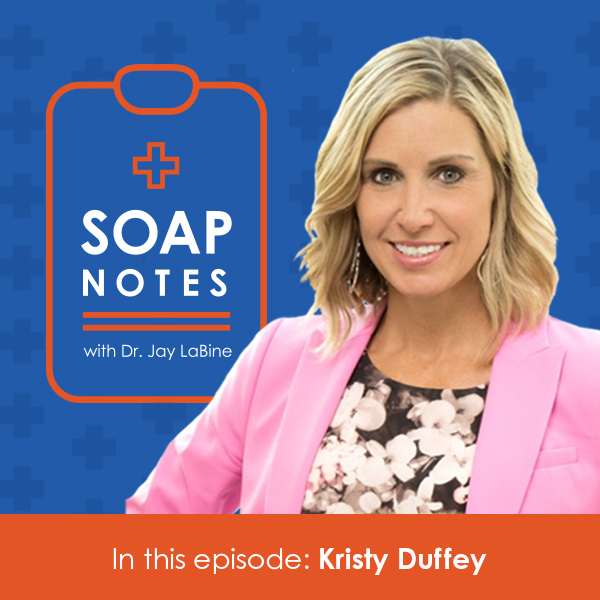
To watch the full episode of SOAP Note with Kristy Duffey, MS, APRN – BC, FAAN, click here.
“The other thing that you and I have been working on is remote patient monitoring. We have a program where we manage full population risk and our dual special needs plan members. We have a certain subset of them on remote patient monitoring for diabetes management, blood pressure management, heart failure. A nurse team gets alerts when a patient’s weight may be going up a pound or their blood pressure may be going up, so that we can engage in that care more timely versus waiting for them to get to the emergency room.
“I think we’ll continue to see all of those things evolve. I also think we’re going to have more of a way to communicate via texting and applications. Think about Amazon when you’re ordering something: You don’t have to talk to anyone. Or if you want to return something, you just print the label.
“I think about my kids and the next generation and what they want and what they’re going to demand from us. We do have to be more consumer centric.”
To enjoy the rest of these SOAP Notes conversations and others, featuring compelling conversation and insight with a range of health care experts, click here or listen on Apple Podcasts, Spotify or Soundcloud.


